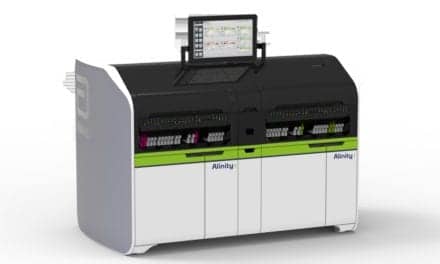
The peer-reviewed study appears in the online edition of the Journal of Microbial & Biochemical Technology. Click here to view the study.
The authors conclude: “Ideally, highly accurate diagnostic tests for TB would be simple to perform, not require specialized equipment or facilities, provide rapid results for decreased time to treatment, are readily available, and cost-effective for the end user. These qualities are especially important in developing or high-TB burdened countries where the access and ability to purchase specialized equipment is limited, and number of trained personnel is low. The results of the present study demonstrate a proof-of-principal for BNP™ Middlebrook in detecting TB compared to the Middlebrook 7H10 reference test and should be considered as an ideal candidate for future evaluation of clinical samples.”
Current rapid detection methods using PCR (molecular diagnostic) technology have a number of limitations in the fight against TB, according to the company. They are unable to differentiate between live actual infection, and presence of dead bacteria in immune patients. PCR technology is very expensive, and needs specially trained personnel to perform testing, something not available, or even feasible, in the areas of the world most in need. Even with PCR, the standard still requires culture positivity, which currently is a 3 to 4 week process. Drug sensitivity is equally as important as identification, and early results using our BNF technology are extremely encouraging, taking only a few hours after bacterial identification, the company says.
“In addition to BNP’s use in detecting many other bacteria, we see this technology as potentially providing both a stand-alone method for determining the presence of an actual TB infection and also a complementary method that can be used with either our BioNanoFilter (BNF) technology or molecular diagnostics methods for initial TB screening,” says Bret T. Barnhizer, CEO of NanoLogix. “We hope that our BNP rapid culture results will make it possible to finally monitor antibiotic treatment for TB in a close-to-real-time manner that is currently unavailable to practitioners.”
He says this ability could provide major assistance in the ongoing campaign to combat the scourge of tuberculosis, which claims more than one million lives a year. The company is a partner in the Stop TB Alliance.
[Source: NanoLogix]





